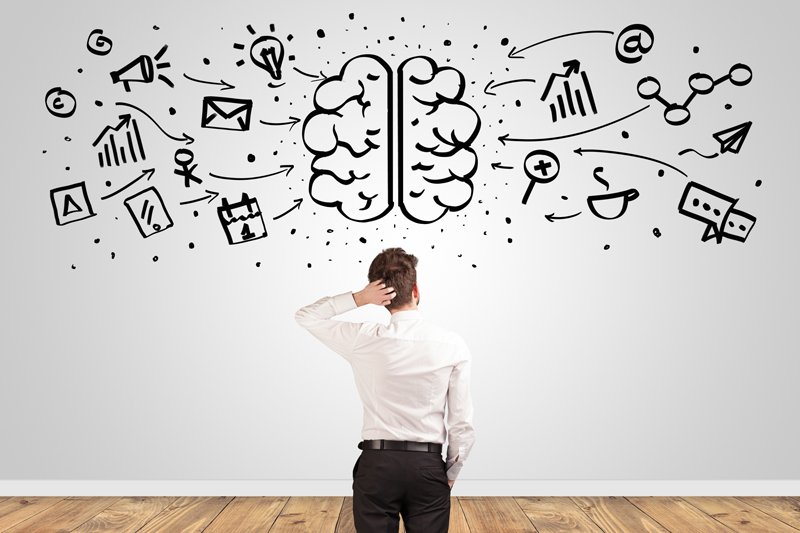On a day-to-day basis, we are generally able to undergo various amounts of stress that doesn’t appear to influence our functioning. However, the feeling of being overwhelmed by COVID-19, or just overwhelmed constantly from everyone in every direction is another story. Toxic stress can appear unmanageable. It tends to have an impact on our physical, spiritual and mental health. Thus, many people will find that prolonged periods of stress gone untreated will result in anxiety, physical ailments, difficulties with work-life balance, and one’s overall spiritual well-being. With just a bit of knowledge in identifying, understanding and managing stress, we can avoid this.
Let’s group stress into two categories: eustress and distress. Eustress is the type of stress we experience that is necessary in our life in order to push our body, mind and actions to reach our potential; like childbirth or marriage. Distress, on the other hand, can be long-term or short-term, and cause us to have decreased performance and loss of hope in our abilities, and can lead to more concerning mental health issues, let alone generalized anxiety symptoms.
Unmanaged stress can have detrimental effects on our mind, body and spiritual health. Stress can result in difficulties with concentration, regulation of emotions, and can increase the severity of already present mental health issues. Unmanaged stress can lead to many physical issues. Stress causes our body to release copious amounts of the hormone cortisol. This causes our brain and body to become inflamed and vulnerable to infection. Prolonged and untreated mental health issues resulting from unmanaged stress can result in inflammatory issues such as IBS, eczema, acid reflux, chronic headaches, chronic pain, and trouble sleeping (improper sleep impacts our body’s ability to regulate emotions, let alone contributes to physical issues). Spiritually, stress can have an impact on our well-being. This is important in order to feel a sense of purpose and identity. When we are under immense stress, it can become difficult to want to focus on your higher power, your values, and belief systems. It is easy to see how unmanaged stress can impact our whole well-being!
Now, stress is necessary in our lives. Without the feeling of a possible stressful situation, we might not be able to protect ourselves from sensing trouble as we walk by a dark alley. Therefore, stress is necessary to protect ourselves. However, “how can I better begin to manage stress?” Start with identifying it. The following are some common signs and symptoms:
- Poor sleep patterns
- Poor appetite
- Increase in irritability and/or mood swings
- Decrease in productivity
- Decreased pleasure in things you once enjoyed
- Withdrawal from family/social supports
- Increase in body tension, headaches or jaw/shoulder/back pain
- Increase in illness frequency and length
- Feeling as though, “I can’t shut my mind off,” “This is too much for me,” “I have no time”
- Increase in use of alcohol/drugs
- Sudden onset/increase in suicidal thoughts (contact 911)
- Withdrawal from use of your spiritual coping mechanisms (yoga, meditation, prayer)
If you have identified with one or more of these issues, it may be beneficial to seek professional help via your local therapist, medical doctor or emergency room. If stress has moved on to causing physical and mental health ailments, you will want a team of support to help you through it. Other helpful ways to manage stress include:
- Accepting you for who you are, including knowing what makes you feel physically/mentally agitated.
- Scheduling regular time for solitude
- Developing good sleep hygiene
- Creating a routine to manage your daily tasks and needs
- Engaging in physical activity for at least 30 minutes, 3-5 days per week
- Utilizing healthy social supports
- Knowing when to say no, understanding that you are just as important as everyone else
- Taking breaks at work as needed
- Taking regular inventory of your well-being
- Intuitively eating colorful foods
- Drinking at least 8 glasses of water daily
- Practicing regular relaxation daily; meditation, progressive muscle relaxation
Being stressed, doesn’t have to be so stressful! Remember, stress can be a GOOD thing. In fact, we need it in our lives in order to function, meet milestones and keep ourselves safe. If you enjoyed the bits of this article, join me in a two-part virtual workshop through Wilcox Wellness LLC, entitled, “Take Back Your Health during COVID-19,” helping you take a break from the stress and anxiety during this difficult time. Space is limited. Intro rate: $115 total, & you get to virtually bring a friend for free! Please contact help@wilcoxwellness.com to enroll!
Jennifer Ljungquist-DeMayo is a National Certified Counselor & Licensed Professional Counselor, EMDR & TF-CBT Trained Therapist & former ACSM Health Fitness Specialist who passionately utilizes her work to provide individuals & groups with skills to heal the mind, body & spirit. She is a clinician at Wilcox Wellness Center for Personal Growth, a private and professional counseling practice located in Southington, CT. She enjoys helping each individual identify & utilize their strengths, unique traits & spirituality, inviting them to embrace who they are. She gives clients a safe space to express and honor their emotions, while encouraging them to work toward defining themselves on their own terms, rather than defining themselves by their trauma history, so they can heal. She can be reached at: Wilcox Wellness, LLC, by phone: 860.266.6098 or email: help@wilcoxwellness.com.
